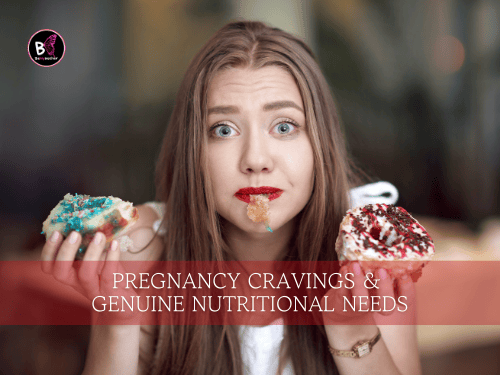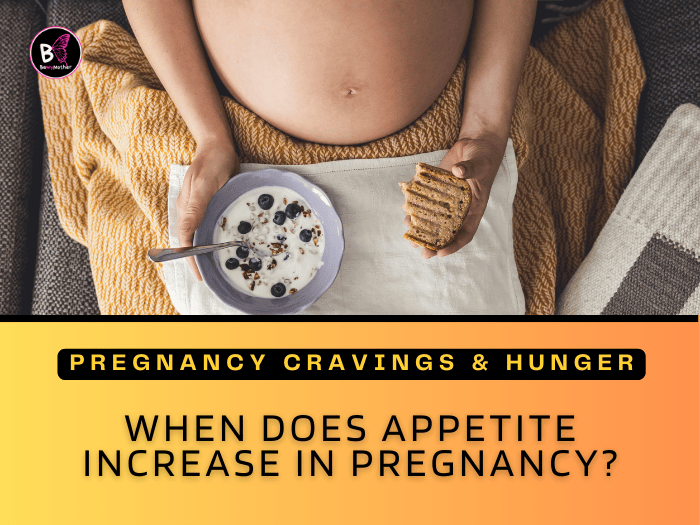📌 Quick Answer: Appetite typically increases in the second trimester as nausea subsides and the baby’s growth accelerates. However, some women may experience fluctuating hunger levels throughout pregnancy due to hormonal shifts, metabolism changes, and nutritional demands.
Pregnancy is an exciting journey filled with physical and hormonal changes, and one of the most common questions expectant mothers have is: When does appetite increase in pregnancy? Some women feel constantly hungry, while others struggle with food aversions. In this guide, we’ll break down how appetite fluctuates throughout each trimester, why cravings happen, and how to maintain a healthy diet while managing hunger.
1. When Does Appetite Increase in Pregnancy?
Appetite changes throughout pregnancy based on hormonal fluctuations and fetal growth. Here’s a general timeline of when appetite shifts:
| Trimester | Appetite Change | Why It Happens |
| First Trimester (Weeks 1-12) | Decreased or fluctuating | Due to nausea, morning sickness, and rising hCG levels |
| Second Trimester (Weeks 13-26) | Increased appetite | Nausea subsides, metabolism rises, baby’s growth accelerates |
| Third Trimester (Weeks 27-40) | Fluctuating hunger | Baby’s size impacts digestion, metabolism peaks |
🔍 Research Insight: Healthline states that while feeling ravenous may be an early indicator of pregnancy, it’s unlikely for this to be your only symptom, and many women find their appetite actually decreases in the first trimester.
Source: healthline.com
2. Why Does Appetite Fluctuate During Pregnancy?

Hormonal changes play a major role in appetite fluctuations during pregnancy.
Key Hormonal Influences on Hunger:
✔ Progesterone Increases Food Intake – It boosts appetite, making some women feel constantly hungry.
✔ Estrogen Suppresses Hunger – It reduces food intake, which can contribute to morning sickness.
✔ Leptin Resistance Develops – Normally, leptin controls hunger signals, but during pregnancy, the body becomes less responsive, making women feel hungrier.
🔍 Research Insight: A review in PMC found that progesterone increases appetite, while estrogen decreases it, explaining why some women feel starving one day and nauseous the next.
Source: pmc.ncbi.nlm.nih.gov
🔍 Research Insight: A study by Boston University reports that during pregnancy, women are resistant to leptin, an endocrine growth factor that reduces appetite and stimulates metabolism. Without leptin’s effects, orexigenic pathways that stimulate hunger are left unopposed, potentially contributing to increased food intake.
Source: Boston University Study
3. First Trimester: Appetite Loss vs. Increased Hunger
Is it normal to be hungry every couple of hours during the first trimester?
The first trimester is known for appetite changes, but most women experience decreased hunger due to morning sickness and nausea.
Common First Trimester Eating Challenges:
✔ Food Aversions – Strong dislikes of certain smells or tastes.
✔ Nausea & Vomiting – Makes it difficult to eat properly.
✔ Cravings for Bland Foods – Bread, crackers, and plain rice are often preferred.
✅ Tips for Managing First Trimester Appetite Loss:
- Eat small, frequent meals to avoid nausea.
- Choose protein-rich snacks like yogurt and nuts.
- Stay hydrated to prevent dehydration-related hunger.
🔍 Research Insight: Pregnancy Birth & Baby notes that food aversions are common in pregnancy, and it is normal to experience either a loss of appetite or a change in food preferences.
Source: pregnancybirthbaby.org.au
💡 Related Article: Struggling with food choices while pregnant? What to Eat for Breakfast Before Pregnancy Glucose Test: 8 Proven Strategies for the Best Results offers expert tips to help you start your day right, especially if you’re managing blood sugar levels.
4. Second Trimester: When Appetite Begins to Increase
Most women notice a significant increase in appetite during the second trimester because:
✔ Morning sickness subsides, making eating easier.
✔ Baby’s growth accelerates, increasing energy needs.
✔ Metabolism speeds up, burning calories faster.
✅ Healthy Eating Tips for the Second Trimester:
- Focus on nutrient-dense foods like lean proteins, whole grains, and vegetables.
- Include healthy fats like avocado, nuts, and fish for fetal brain development.
- Avoid excess sugar and processed foods to prevent energy crashes.
🔍 Research Insight: The Health Research Council of New Zealand states that pregnant women develop leptin resistance, making them feel hungrier despite adequate calorie intake.
Source: hrc.govt.nz
💡 Related Article: Looking for nutrient-packed foods to support your pregnancy? Bone Broth Pregnancy: What Studies Say + 10 Powerful Benefits & How to Safely Enjoy It explains why bone broth is a great addition to your diet.
5. Third Trimester: Does Hunger Increase Before Labor?
In the third trimester, appetite can fluctuate due to:
✔ Increased metabolism – The body burns more calories.
✔ Cravings & Energy Demands – Many women crave carbs as the body prepares for labor.
✔ Digestive Discomfort – The baby’s size can put pressure on the stomach, reducing hunger.
Signs of Increased Hunger Before Labor:
- Strong carb cravings (pasta, bread, potatoes).
- Sudden bursts of energy, sometimes called nesting mode.
- Desire to eat larger meals.
🔍 Research Insight: A prospective study found a negative correlation of maternal fasting plasma active GLP-1 (known for its anorectic actions) with fetal abdominal circumference measurements during the second trimester, suggesting maternal appetite axis molecules are implicated in the deposition of fetal adipose tissue and energy storage processes, rather than fetal growth.
Source: pmc.ncbi.nlm.nih.gov
6. Pregnancy Cravings vs. Nutritional Needs

Cravings can be linked to nutrient deficiencies, but sometimes, they’re simply due to hormonal shifts.
| Craving | Possible Nutrient Deficiency | Healthy Alternative |
| Chocolate | Magnesium | Nuts, dark leafy greens |
| Ice Cream | Calcium | Yogurt, cheese, almonds |
| Chips/Salt | Sodium | Avocado, olives, pickles |
💡 Related Article: Craving something sweet but worried about safety? Is Pineapple Safe During Pregnancy? 10 Important Facts You Should Know dives into whether this tropical fruit is a good choice for expecting moms.
7. Is It Normal to Have No Appetite During Pregnancy?
Yes! Some women experience low appetite due to:
✔ Morning sickness in early pregnancy.
✔ Heartburn & Indigestion in the third trimester.
✔ Stress, anxiety, or fatigue.
✅ When to See a Doctor:
- Severe appetite loss leading to weight loss.
- Inability to eat for more than 24 hours.
- Extreme fatigue or dizziness from low food intake.
8. Managing Extreme Hunger: Healthy Eating Strategies

If you feel constantly hungry, try these healthy eating tips:
| Strategy | Why It Works |
| Eat protein-rich foods | Keeps you fuller longer |
| Drink water before meals | Prevents mistaking thirst for hunger |
| Snack on fiber-rich foods | Helps regulate blood sugar |
| Include healthy fats | Provides lasting energy |
✅ Best Pregnancy Snacks:
- Greek yogurt with fruit
- Hard-boiled eggs
- Whole-grain toast with avocado
💡 Related Article: Staying hydrated is just as important as eating well during pregnancy! Pregnancy Hydration Drink: 8 Best Ways to Stay Hydrated for a Healthy Pregnancy explores the best drinks to keep you refreshed and energized.
FAQ Section: Answering Common Questions About Appetite and Pregnancy
Q1: When does appetite increase in pregnancy?
A1: Appetite typically increases in the second trimester when morning sickness subsides, and the baby’s growth accelerates.
Q2: Why am I not hungry in early pregnancy?
A2: Morning sickness, hormonal changes, and food aversions can cause reduced appetite in the first trimester.
Q3: Does appetite increase right before labor?
A3: Some women experience a surge in hunger before labor, while others lose their appetite due to hormonal shifts.
Q4: What foods help satisfy pregnancy cravings without overeating?
A4: High-protein snacks, fiber-rich foods, and healthy fats help manage hunger without excessive calorie intake.
Q5: Should I be concerned if I have no appetite in pregnancy?
A5: If appetite loss persists and leads to inadequate nutrition, consult a healthcare provider to rule out underlying issues.
Conclusion: When Does Appetite Increase in Pregnancy?
In conclusion, understanding “when does appetite increase in pregnancy” involves recognizing the interplay of hormonal shifts, physical changes, and individual experiences. While the second trimester often marks the onset of increased hunger, it’s essential to embrace a mindful approach to eating, balancing cravings with nutritious choices to support a healthy pregnancy journey. Consult your healthcare provider for personalized advice and support in navigating your unique appetite changes during pregnancy.



